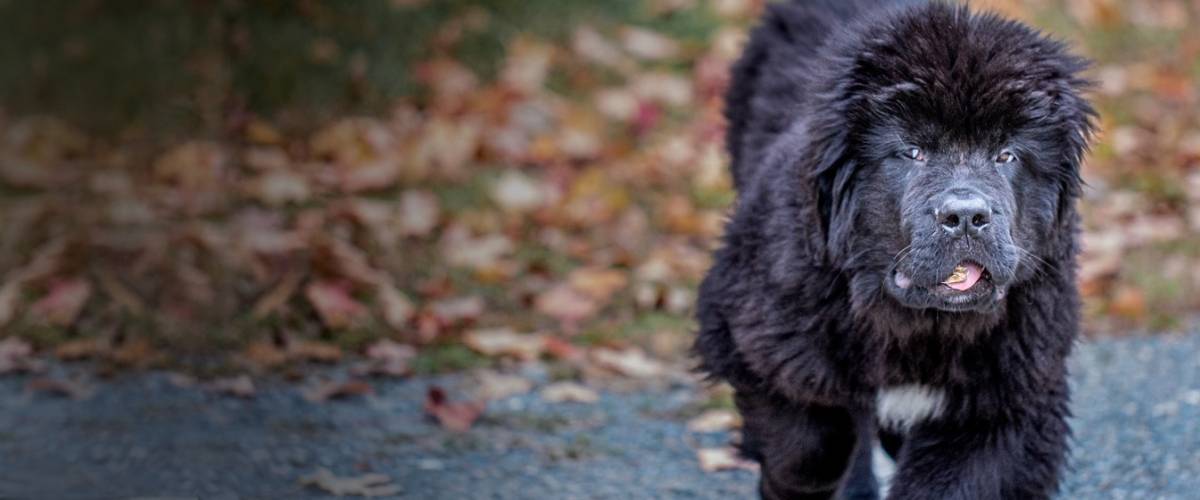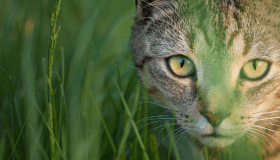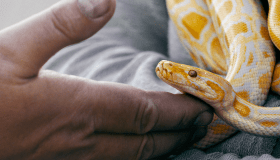
DENVER/April 28, 2021 – Newfoundland forelimb anomaly is a unique, often-debilitating elbow deformity found in the Newfoundland dog breed, and a condition that currently is not well understood.
Now, a newly funded study from Morris Animal Foundation hopes to improve that understanding by investigating changes in the Newfoundland dog genome that may be responsible for development of forelimb anomaly. The study also could help advance scientific understanding of bone and joint development in other breeds with these types of bone structure anomalies.
Dr. Vilma Yuzbasiyan-Gurkan, Professor and former Associate Dean for Research and Graduate Studies at Michigan State University’s College of Veterinary Medicine, is the recipient of this Donor-Inspired Study grant, funded by the Newfoundland Club of America Charitable Trust (NCA Charitable Trust). For more than 20 years, the NCA Charitable Trust has been committed to funding research projects aimed at addressing critical health issues affecting the Newfoundland breed.
“We know this is a genetic disease, but it is unclear exactly how it is inherited and comes about,” said Dr. Yuzbasiyan-Gurkan. “It can be very painful for the dogs that are affected, and euthanasia is often the only option, which is very heartbreaking and something we want to avoid.”
For her study, Yuzbasiyan-Gurkan will first sequence the whole genome from DNA samples of two or three trios of Newfoundlands, consisting each of a normal dam and sire and an affected offspring. She believes she will find variations in the DNA of the affected offspring that differ from their unaffected parents.
Once they validate their findings in at least one additional trio, her team will search for those variants in DNA samples from 30 affected Newfoundlands and about 100 unaffected Newfoundlands. Some of those samples will come from the NCA Charitable Trust. Yuzbasiyan-Gurkan expects to find a disproportionally high number of variants in the affected population and the variants will be low or nearly absent in the unaffected population.
If successful, she hopes this information will lead to a genetic test that will help breeders avoid passing along the trait in Newfoundlands and potentially in other breeds. More broadly, the study could produce insights into the development of cartilage and bones.
“This is a frustrating and poorly defined disease that causes a great deal of concern for Newfoundland breeders and owners. What we learn from this work for Newfoundlands may also have implications for our overall understanding of bone and joint development and ultimately similar conditions affecting other breeds,” said Dr. Janet Patterson-Kane, Morris Animal Foundation Chief Scientific Officer. “Healthy bone and joint structure is essential for quality of life and well-being, and we hope this study will lead to methods of predicting and eliminating, or at least reducing the incidence of this particular condition.”
First characterized in 1988, Newfoundland forelimb anomaly is a problem loosely defined as a growth abnormality that leads to deformity of the elbow joints. The condition is painful for affected dogs, making it difficult for them to walk, and there are no reliable treatment options. The condition is found in breeds such as Newfoundlands, Bernese mountain dogs and Tibetan mastiffs. It is not known how many dogs are impacted, but the condition is considered to be a significant issue by breeders and owners.
The Foundation’s Donor-Inspired Study program allows individual donors and foundations to directly support research topics for which they have a passion and there is a pressing need. Applications for this grant were reviewed and rated, based on impact and scientific rigor, by a Foundation scientific advisory board.
Morris Animal Foundation is one of the largest nonprofit organizations worldwide that funds health studies benefiting cats, dogs, horses, llamas, alpacas and wildlife. The Foundation currently is funding 150 studies encompassing a broad spectrum of species and diseases.
About Morris Animal Foundation
Morris Animal Foundation’s mission is to bridge science and resources to advance the health of animals. Founded by a veterinarian in 1948, we fund and conduct critical health studies for the benefit of all animals. Learn more at morrisanimalfoundation.org.




